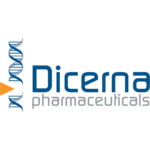 Dicerna Pharmaceuticals (NSDQ:DRNA) said yesterday that it plans to spike the development program for its lipid nanoparticle delivery system for solid tumors because its preliminary results don’t meet expectations.
Dicerna Pharmaceuticals (NSDQ:DRNA) said yesterday that it plans to spike the development program for its lipid nanoparticle delivery system for solid tumors because its preliminary results don’t meet expectations.
The Cambridge, Mass.-based company evaluated its lipid nanoparticle, DCR-MYC, in a pair of clinical trials – a Phase I study of patients with solid tumors, hematological malignancies and pancreatic neuroendocrine tumors; and a Phase Ib/II trial of patients with hepatocellular carcinomas. Tumor biopsies taken pre- and post-treatment showed proof of concept for the nanoparticle as a drug delivery system, but the therapy’s efficacy was less than expected, according to Dicerna.
The company said it will focus its resources on its GalXC technology platform to advance candidates for therapeutic areas like rare disease and chronic liver diseases.
“Based on the performance of the GalXC platform, the strength of the preclinical data and the broad therapeutic opportunities for RNAi in liver-targeted diseases, we are prioritizing resources to advance the product candidates emerging from this platform,” president & CEO Douglas Fambrough said in prepared remarks. “Discontinuing our DCR-PH1 and DCR-MYC lipid nanoparticle programs allows us to focus our resources on efficiently developing our GalXC product candidates and building on the solid scientific foundation in RNAi that Dicerna has developed over the past decade. We greatly appreciate the participation of all of the patients, families and clinical investigators in the DCR-PH1 development program, as their contributions provided important insights into the primary hyperoxaluria disease state, which will guide the development of DCR-PHXC.”
DRNA shares were trading at $4.18 apiece in mid-morning activity today, down -2.11%.

